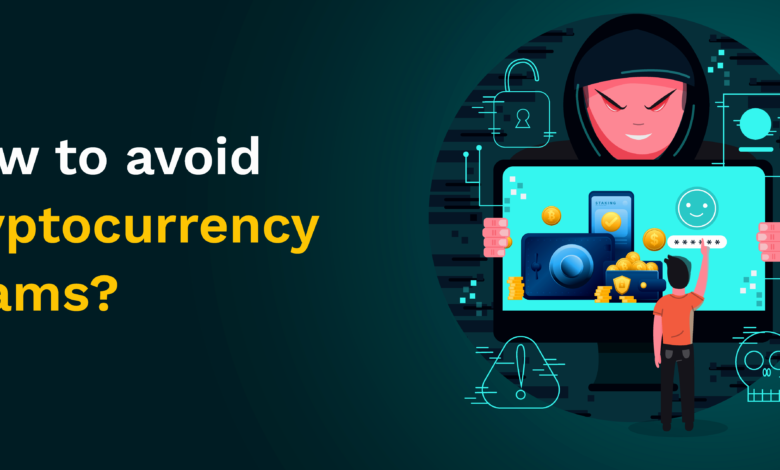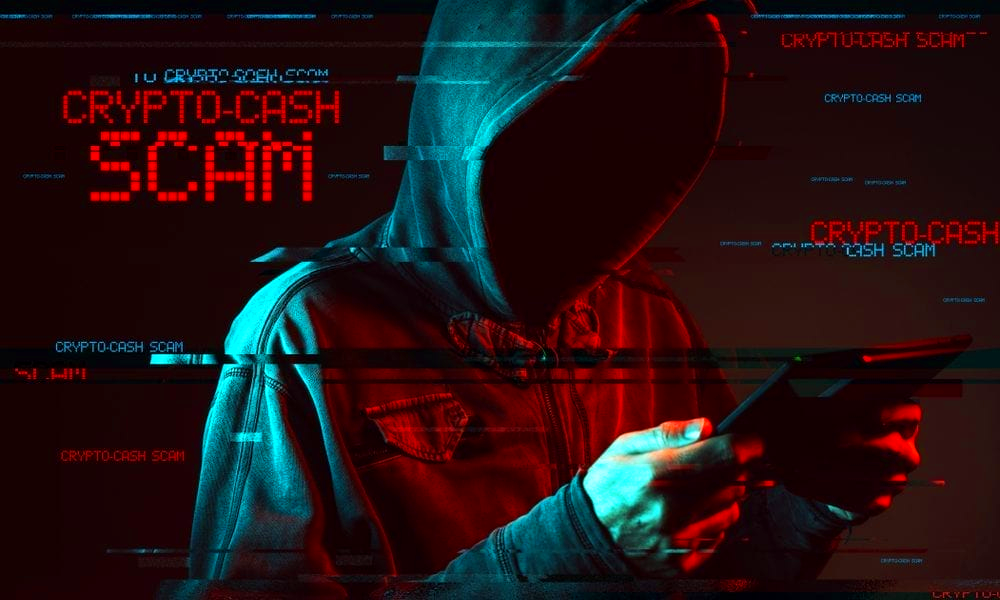How to Avoid Crypto Scams and Stay Safe Online
This comprehensive guide will walk you through essential tips on how to avoid crypto scams and stay safe online.

Cryptocurrency has revolutionized the financial world, offering decentralized, secure, and fast transactions. However, with the rise of digital currencies, crypto scams have also proliferated. Scammers are becoming increasingly sophisticated, making it crucial for users to stay vigilant and informed. This comprehensive guide will walk you through essential tips on how to avoid crypto scams and stay safe online.
1. Educate Yourself About Common Crypto Scams
Understanding the Threat Landscape
The first step in avoiding crypto scams is to understand the different types of scams that exist. Some of the most common crypto scams include:
- Phishing Scams: Scammers create fake websites or send emails that mimic legitimate crypto platforms to steal your login credentials.
- Ponzi Schemes: Fraudsters promise high returns on investments but use new investors’ funds to pay earlier investors, creating an unsustainable cycle.
- Fake ICOs (Initial Coin Offerings): Scammers create fake ICOs to lure investors into buying non-existent tokens.
- Pump and Dump Schemes: Groups artificially inflate the price of a cryptocurrency through misleading statements, then sell off their holdings at the peak, causing the price to crash.
- Impersonation Scams: Scammers impersonate well-known figures in the crypto space to trick victims into sending them cryptocurrency.
How to Protect Yourself

- Research: Always research any new cryptocurrency or platform before investing. Look for reviews, news articles, and community feedback.
- Verify Sources: Double-check URLs and email addresses to ensure they are legitimate. Be cautious of unsolicited messages.
- Stay Informed: Follow reputable crypto news outlets and forums to stay updated on the latest scams and security threats.
2. Use Strong Security Practices
Creating Strong Passwords
One of the simplest yet most effective ways to protect your crypto assets is by using strong, unique passwords. Avoid using easily guessable passwords like “123456” or “password.” Instead, create complex passwords that include a mix of letters, numbers, and special characters.
Enabling Two-Factor Authentication (2FA)
Two-factor authentication adds an extra layer of security to your accounts. Even if a scammer manages to get your password, they won’t be able to access your account without the second factor, which is usually a code sent to your mobile device.
Using Hardware Wallets
Hardware wallets are physical devices that store your private keys offline, making them immune to online hacking attempts. While they may require a small investment, the added security is well worth it.
How to Protect Yourself
- Password Managers: Use a password manager to generate and store complex passwords securely.
- 2FA Apps: Use authenticator apps like Google Authenticator or Authy instead of SMS-based 2FA, which can be intercepted.
- Regular Updates: Keep your software and devices updated to protect against the latest security vulnerabilities.
3. Be Cautious of Unsolicited Offers
Recognizing Red Flags
Scammers often use unsolicited offers to lure victims. These can come in the form of emails, social media messages, or even phone calls. Common red flags include:
- Too Good to Be True: Promises of guaranteed high returns with little to no risk.
- Urgency: pressure to act quickly, often with a limited-time offer.
- Anonymity: requests for payments in cryptocurrency, which are difficult to trace and recover.
How to Protect Yourself
- Ignore Unsolicited Offers: Be skeptical of any unsolicited offers, especially those that promise high returns.
- Verify Identities: If someone claims to represent a reputable company, verify their identity through official channels.
- Report Scams: Report any suspicious offers to the relevant authorities or platforms.
4. Verify the Legitimacy of Crypto Platforms
Researching Platforms
Before using any crypto platform, whether it’s an exchange, wallet, or ICO, it’s essential to verify its legitimacy. Look for the following:
- Regulation: Check if the platform is regulated by a reputable financial authority.
- Reputation: Read reviews and testimonials from other users. Be wary of platforms with overwhelmingly negative feedback.
- Transparency: Legitimate platforms will have clear information about their team, location, and operational history.
How to Protect Yourself
- Check URLs: Ensure the website URL is correct and uses HTTPS for secure communication.
- Look for Red Flags: Be cautious of platforms with poor website design, spelling errors, or lack of contact information.
- Community Feedback: Join crypto communities on forums like Reddit or Telegram to get insights from other users.
5. Avoid Public Wi-Fi for Crypto Transactions
Understanding the Risks
Public Wi-Fi networks are often unsecured, making them a prime target for hackers. When you connect to a public Wi-Fi network, your data can be intercepted, putting your crypto assets at risk.
How to Protect Yourself
- Use a VPN: A virtual private network (VPN) encrypts your internet connection, making it much harder for hackers to intercept your data.
- Mobile Data: If possible, use your mobile data instead of public Wi-Fi for crypto transactions.
- Secure Networks: Only use trusted, secure networks for accessing your crypto accounts.
6. Be Wary of Social Engineering Attacks
Recognizing Social Engineering
Social engineering attacks involve manipulating individuals into divulging confidential information. In the crypto world, this could involve scammers posing as customer support representatives or even friends and family.
How to Protect Yourself
- Verify Identities: Always verify the identity of anyone requesting sensitive information.
- Be skeptical: Be cautious of any requests for private keys, passwords, or other sensitive information.
- Educate Others: Share information about social engineering attacks with friends and family to help them stay safe.
7. Keep Your Private Keys Secure
Understanding Private Keys
Your private key is the most critical piece of information in your crypto wallet. It grants access to your funds, and if it falls into the wrong hands, your assets can be stolen.
How to Protect Yourself
- Never Share: Never share your private key with anyone, no matter how trustworthy they seem.
- Offline Storage: Store your private keys offline, preferably in a hardware wallet or a secure physical location.
- Backup: Create multiple backups of your private keys and store them in different secure locations.
8. Regularly Monitor Your Accounts
Staying Vigilant
Regularly monitoring your crypto accounts can help you detect any unauthorized transactions or suspicious activity early. The sooner you identify a potential issue, the quicker you can take action to mitigate the damage.
How to Protect Yourself
- Set Alerts: Use account alerts to notify you of any transactions or changes to your account.
- Review Statements: Regularly review your transaction history for any unauthorized activity.
- Immediate Action: If you notice anything suspicious, take immediate action by changing your passwords and contacting the platform’s support team.
9. Use Reputable Exchanges and Wallets
Choosing the Right Platforms
Not all crypto exchanges and wallets are created equal. Some are more secure and reputable than others. When choosing a platform, consider the following:
- Security Features: Look for platforms with robust security features like 2FA, encryption, and cold storage.
- Reputation: Choose platforms with a strong reputation and positive user reviews.
- Customer Support: Ensure the platform offers reliable customer support in case you encounter any issues.
How to Protect Yourself
- Research: Spend time researching different platforms before making a decision.
- Start Small: When trying out a new platform, start with a small amount of cryptocurrency to test its reliability.
- Diversify: Consider using multiple wallets and exchanges to spread your risk.
10. Stay Updated on Security Best Practices
Continuous Learning
The crypto landscape is constantly evolving, and so are the tactics used by scammers. Staying updated on the latest security best practices is essential for protecting your assets.
How to Protect Yourself
- Follow Experts: Follow reputable crypto experts and security professionals on social media and blogs.
- Attend Webinars: Participate in webinars and online courses on crypto security.
- Join Communities: Engage with crypto communities to share knowledge and learn from others’ experiences.
Conclusion
Cryptocurrency offers incredible opportunities, but it also comes with significant risks. By educating yourself, using strong security practices, and staying vigilant, you can protect yourself from crypto scams and enjoy the benefits of digital currencies safely. Remember, the key to staying safe online is continuous learning and proactive security measures. Stay informed, stay cautious, and most importantly, stay safe.
By following these detailed steps, you can significantly reduce your risk of falling victim to crypto scams and ensure that your online experience remains secure. The world of cryptocurrency is exciting and full of potential, but it’s essential to navigate it with caution and awareness.









